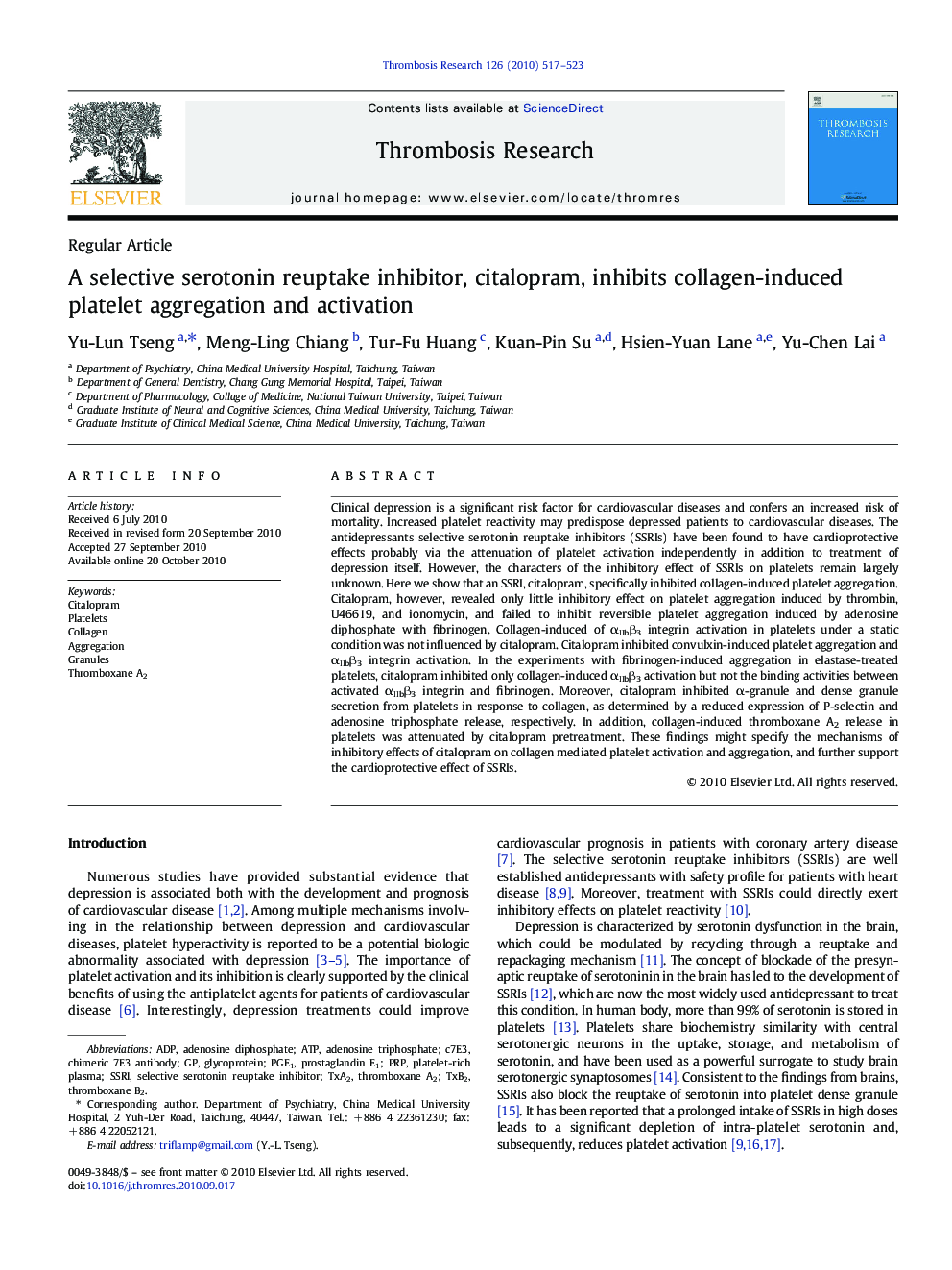| Article ID | Journal | Published Year | Pages | File Type |
|---|---|---|---|---|
| 3029122 | Thrombosis Research | 2010 | 7 Pages |
Clinical depression is a significant risk factor for cardiovascular diseases and confers an increased risk of mortality. Increased platelet reactivity may predispose depressed patients to cardiovascular diseases. The antidepressants selective serotonin reuptake inhibitors (SSRIs) have been found to have cardioprotective effects probably via the attenuation of platelet activation independently in addition to treatment of depression itself. However, the characters of the inhibitory effect of SSRIs on platelets remain largely unknown. Here we show that an SSRI, citalopram, specifically inhibited collagen-induced platelet aggregation. Citalopram, however, revealed only little inhibitory effect on platelet aggregation induced by thrombin, U46619, and ionomycin, and failed to inhibit reversible platelet aggregation induced by adenosine diphosphate with fibrinogen. Collagen-induced of αIIbβ3 integrin activation in platelets under a static condition was not influenced by citalopram. Citalopram inhibited convulxin-induced platelet aggregation and αIIbβ3 integrin activation. In the experiments with fibrinogen-induced aggregation in elastase-treated platelets, citalopram inhibited only collagen-induced αIIbβ3 activation but not the binding activities between activated αIIbβ3 integrin and fibrinogen. Moreover, citalopram inhibited α-granule and dense granule secretion from platelets in response to collagen, as determined by a reduced expression of P-selectin and adenosine triphosphate release, respectively. In addition, collagen-induced thromboxane A2 release in platelets was attenuated by citalopram pretreatment. These findings might specify the mechanisms of inhibitory effects of citalopram on collagen mediated platelet activation and aggregation, and further support the cardioprotective effect of SSRIs.
